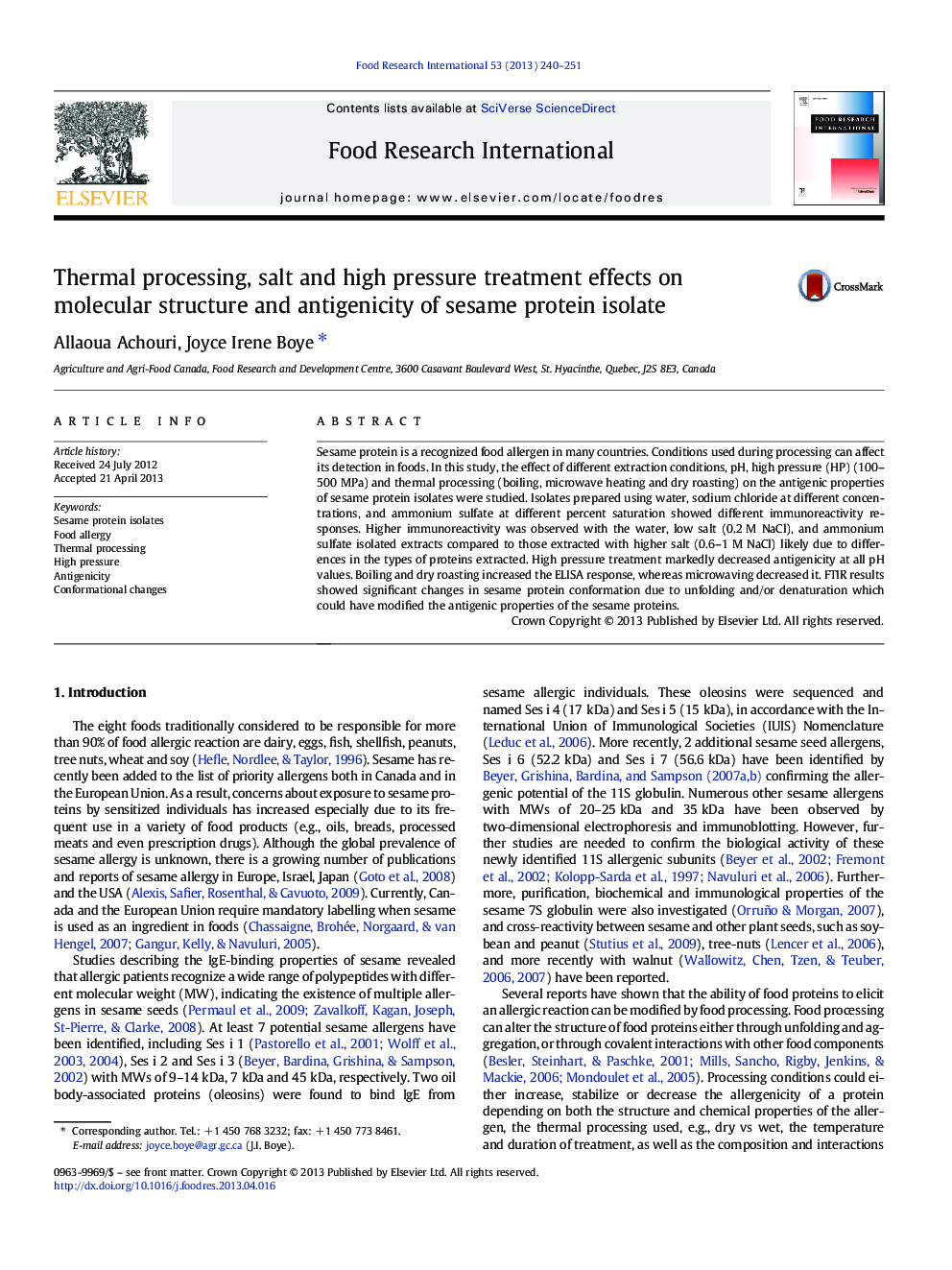| Article ID | Journal | Published Year | Pages | File Type |
|---|---|---|---|---|
| 6397735 | Food Research International | 2013 | 12 Pages |
Abstract
Sesame protein is a recognized food allergen in many countries. Conditions used during processing can affect its detection in foods. In this study, the effect of different extraction conditions, pH, high pressure (HP) (100-500Â MPa) and thermal processing (boiling, microwave heating and dry roasting) on the antigenic properties of sesame protein isolates were studied. Isolates prepared using water, sodium chloride at different concentrations, and ammonium sulfate at different percent saturation showed different immunoreactivity responses. Higher immunoreactivity was observed with the water, low salt (0.2Â M NaCl), and ammonium sulfate isolated extracts compared to those extracted with higher salt (0.6-1Â M NaCl) likely due to differences in the types of proteins extracted. High pressure treatment markedly decreased antigenicity at all pH values. Boiling and dry roasting increased the ELISA response, whereas microwaving decreased it. FTIR results showed significant changes in sesame protein conformation due to unfolding and/or denaturation which could have modified the antigenic properties of the sesame proteins.
Related Topics
Life Sciences
Agricultural and Biological Sciences
Food Science
Authors
Allaoua Achouri, Joyce Irene Boye,
